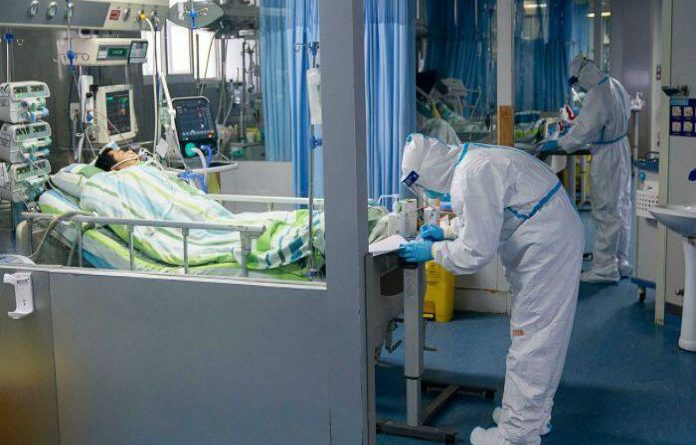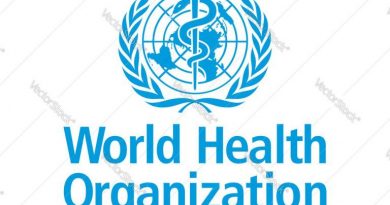COVID-19: The Essential Journalist
This is done at a great risk to life and family, especially in times of war, conflict, natural disasters, political and social insurrection and pandemics, among others.
The world is currently faced with an overwhelming crisis called the Corona Virus or COVID-19. With more than one million cases and tens of thousands deaths and still counting (according to www.worldometers.info), the virus has left a devastating effect on human interactions, the global stock markets, social gatherings, work activities, general health conditions and a host of others. These effects, as a result, called for a restraining order of schools, offices, business outlets, markets, places of worship and other meeting points, to remain closed until further notice. In short, the society is on lockdown remedy.
In the light of this, there are some people or occupations that are exempted from the shutdown due to the nature of the jobs. These jobs are called “essential services or jobs”.
Being one of the essential services, the media constantly keeps the public updated with local and global trends, including public opinions.
Since the outbreak of the virus, many offices, businesses and venues for social gatherings have been shut down following the order from the Federal Government, yet media organisations, like the radio, newspaper and television stations, as well as, new media stations, are presently open..
Despite the ravaging spread of paranoia and despair attributed to the pandemic, journalists are on the go to keep us abreast on the Corona Virus.
According to Twitter’s Global Lead for Legal, Policy, Trust and Safety, Vijaya Gadde reasoned that: “Right now, every journalist is a COVID-19 journalist. From the stories of healthcare workers on the frontlines to the analyses of the real human and economic cost of the pandemic, reporters around the world are still writing, still exposing themselves to harm, still giving us the facts”.
At a time like this journalist may be required to follow these two steps, prevention and action. The questions to be asked are: To what lengths are journalists taking to avoid the infection, more specifically, while in the line of duty? Should they be allowed to carry out their duties at this time if pregnant or ill? These questions handle the ‘prevention step’.
Meanwhile, in disseminating stories (that is, the action step) relating to the pandemic, what do you write? Are they factual, balanced and objective, or stories full of sensationalised and exaggerated contents to make your papers sell like hot Okpa (Bambara seed pudding) in the morning?
Some organisations have taken it a notch higher to check that journalists are cared for during this perilous time, via cash donations.
Recently, social networking and microblogging company, Twitter, gave out the sum of $1million evenly to two NGOs, the Committee to Protect Journalists (CPJ) and the International Women’s Media Foundation (IWMF).
According to the company, the donation was done to appreciate journalists “that are working tirelessly to uphold the fundamental values of a free press during this pandemic”. Gestures such as this will go a long way in protecting our journalists and reassuring them that we acknowledge the sacrifices they make.
But more importantly, the major concern is the manner of reportage since the wake of the virus. As earlier said, a reporter must deviate from writing exaggerated, outlandish stories and using sensationalised headlines.
It is necessary to find a balance as a reporter. Although a journalist may want to pacify the readers, it is equally required not to write anything (though factual) that will instil or aggravate fear among the public. Remember that the spread occurs by the minute in some areas. Therefore, it is always important that the figures of casualties are accurate and updated; also, places, names of spokespersons and other information should be correct.
Explain scenarios, figures and its implication in the simplest of terms; this way, people from all educational backgrounds will understand. In addition, racial remarks must be avoided. For example, although the virus began late last year in the Wuhan province of China, some news, tweets and other forms of reports have called it, “the Chinese virus” plus other aspersions which may put Chinese citizens to ridicule, hate and discrimination from other nationals. In writing a report in connection to Covid-19 and the impacts on people, it is imperative to get inputs from every side: from the government to health personnel,
students, private and public sector workers, entrepreneurs, taxi drivers, hawkers, those in self-isolation, the rich, the poor…virtually, everyone, to get a thorough, fair opinion of the public about the virus and how everyone is affected.
Furthermore, a journalist should always refer to authoritative sources such as WHO, NCDC and Ministry of Health, for verifiable and authentic information.
Leaving with a concluding remark from Vijaya Gadde: “COVID-19 has been with us for months but the power of the virus is now being felt on all corners of the globe. We’re witnessing real-time public conversation on an issue that connects us all on a core human level and our purpose has never been stronger. We will continue to work with our partners as the crisis evolves and are grateful for their journalistic leadership and commitment to the power of the pen”.
Once again for emphasis, the “Essential Journalist” both at home and in the diaspora, is not immune to the pandemic. Therefore, there is need for life insurance for Journalists involved in the day to day coverage of this pandemic while government at all levels must spare some thoughts for the essential journalist, who goes the whole nine yards to feed you
and me with up-to-date information as the global lockdown persists due to the COVID-19 pandemic.
Gabriel O. Odu and Deborah T. Anaelechi work with the Media, Public Relations and Protocols Unit of the Nigerians in Diaspora Commission, Abuja.




